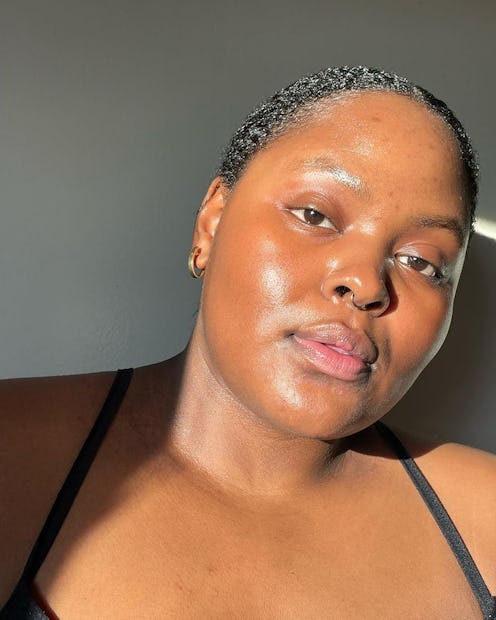(Skin)
This $39 Mask Is An Expert-Approved Way To Try A Chemical Peel At Home
Calling all DIY skin care enthusiasts.

Every skin care enthusiast can recall a time when an at-home treatment went awry. Perhaps you left a mask on too long, forgot to apply a slipping agent before going in with your gua sha, or didn’t bother to spot test a new product that resulted in an itchy rash. Misusing even the best at-home chemical peels, however, could cause much more than an inconvenience, which is perhaps what makes them so intimidating. “A chemical peel is a procedure in which a chemical exfoliant is applied to the skin to promote sloughing of dead skin cells and layers of the skin depending on the depth,” dermatologist Dr. Lian Mack tells TZR. “It is primarily used to improve the texture, tone, and overall appearance.”
Though chemical peels are ideally done in a doctor’s office, the ones available on the market contain a lower potency of acids so as to reduce the risk of skin damage. “At-home chemical peels should be products that have about 10% to 25% of exfoliating acids with a pH of 5 to 6,” says esthetician Tiara Willis. Even if a peel is marketed as safe for at-home use, Dr. Purvisha Patel adds that it’s crucial to speak to your dermatologist about what concentration your skin can handle. “If the peel is too strong, you can wound the skin deeper than anticipated, and this can lead to infections and even hyperpigmentation,” she says.
Still, if you’re determined to get a spa-worthy glow without the trip to the spa, don’t let the risks totally deter you from giving at-home peels a go — just make sure you’ve taken the necessary precautions. In addition to getting your derm’s approval, Willis says taking proper care of your skin before and after treatment is just as important, especially wearing SPF 30 for at least two weeks. “I also recommend discontinuing retinoids, benzoyl peroxide, exfoliating acids, and hydroquinone a few days before the peel,” she says.
There’s no question that the safest and most effective chemical peels are done by professionals, but if you’re going to attempt one at home, there are certain standout products to which these experts would point you. Ahead, discover the best expert-approved at-home chemical peels to add to your routine for rejuvenated skin.
We only include products that have been independently selected by TZR's editorial team. However, we may receive a portion of sales if you purchase a product through a link in this article.
This article was originally published on